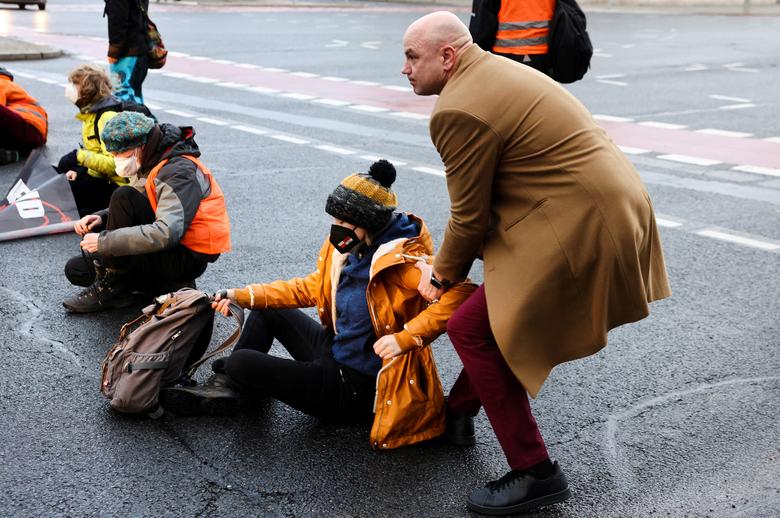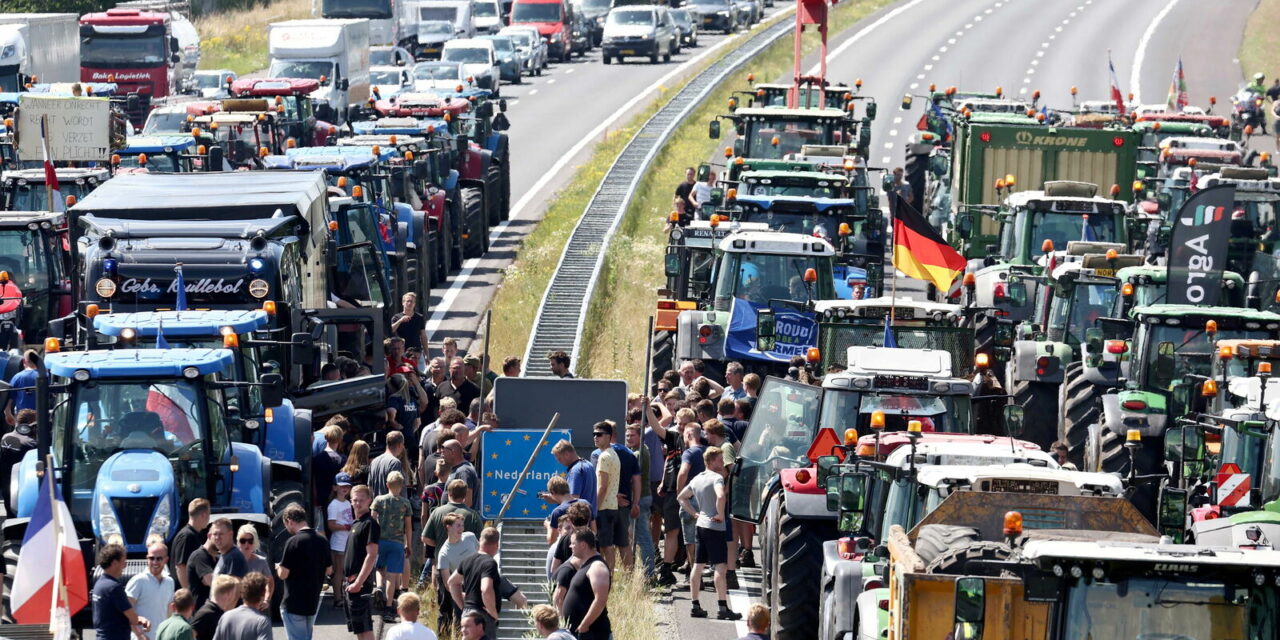Workers in the West no longer need the left to rebel, writes Malcom Kyeyune at UnHerd.
According to a story told by the left in the early 2010s, the age of the great work stoppages is over. The Soviet Union fell, Thatcher crushed the miners, and Britain's largest trade unions began to decline. There was no more capacity for the volcanic eruptions we read about in the history books. Or so they thought.
Today, however, the West is experiencing an intense period of the workers' movement. Farmers are protesting in the Netherlands, Germany and France. Railroad workers are threatening the U.S. economy with shutdowns over a lack of pay raises and paid sick leave. In Canada, truckers closed several border crossings and occupied Ottawa for a month. British nurses and Canadian teachers are on the brink of a mass strike. In France, nuclear workers are threatening to strike, while a strike by refinery workers earlier this year led to acute fuel shortages, resulting in hours-long queues at wells.
And for that matter, it doesn't seem like the militant wave is going to die down anytime soon.
Moreover, in terms of the overall economic situation, things are likely to get even worse: inflation is exploding, energy shortages and the cost of living are rising. Employees become increasingly angry and are able to show their anger.
It is interesting that the revival of the labor movement did not change the fate of the radical or populist left.
It only showed that the depth of the gulf between them and the working class was permanent and unbridgeable. Six years after the asia of Bernie Sanders and Jeremy Corbyn began to rise, legitimate labor anger is often seen as a tool of the "far right" and the labor movement is feared and despised.
This fear speaks to one of the central political conflicts of our time: working people are increasingly aware that
the sharpest dividing line is between people working in the "real" economy and those working in the "virtual" economy.
Over the past decade, many terms have been coined to describe this divide, from “professional managerial class” to “online caste”. Neither label is perfect, but their growing popularity shows that more and more people are seeing it: there really is a conflict here. A person driving a truck or a tractor and a revolutionary working for an NGO supported by billionaires are not only unnatural allies, but their different roles in the economy make them increasingly flesh-and-blood enemies.
It's no surprise that farmers are on the front lines of the fight. An absurd illustration of the deep contradictions of indebted, deindustrialized Western economies on Twitter and TikTok—where else? –, can be seen, where young, radical climate protesters "want to wipe out agriculture".
Agriculture, it turns out, is so harmful to the planet in terms of CO2 pollution that we need to eliminate this industry altogether.
Leaving aside the ridiculousness of the wish, which would starve us all if it came true, let's focus on the fact that
we live in a society in which this position – fighting agriculture for the sake of climate change – is not only possible, but admirable.
For college students, the question of where food comes from is completely abstract; and as they move from university radicalism to civil society to government service and back again on their chosen life path, they don't have to face anything that would change their view of the world. Their connection to material reality—the farmers who toil for the crops and the truckers who make sure the food gets to the shelves—is almost completely severed.
It seems that the young people protesting for the climate do not realize that food does not grow in supermarkets.

A man drags a Last Generation activist who blocks a freeway exit to protest food waste and call for changes to agriculture to reduce greenhouse gas emissions. Berlin, Germany on February 7, 2022. REUTERS/Christian Mang
But even more damaging is the fact that a crisis of over-regulation created and controlled by the "online caste" is emerging. Proliferating regulations only create frustration and anger in the real workers who have to live by these rules. Of course, the idea that we have to give up internal combustion engines by the mid-20s-30s is probably motivated by a sincere concern for environmental protection, and not malice.
The problem, however, is that these goals are completely out of touch with reality.
Last year, Canadian trucker Gord Magill asked a simple, radical question: "How essential are online castes?" Magill's essay was an early example of the new class consciousness slowly emerging in the West. He openly admitted that there is an "us and them" opposition that does not fit into the left's "99% and 1%" concept. For Magill, farmers, truckers, and aircraft mechanics make up "us," and the direct enemies are NGOs, activists, and managers. Whether we are looking at a farmer's protest in the Netherlands, a truck driver's movement in Canada, or a pilot's strike in Florida, there are more and more echoes of the analysis everywhere.
The enemy is no longer embodied by the cigar-smoking, top-hatted capitalist, but by Klaus Schwab; the manager and the regulator. And this means shutting down economies, digitizing currencies, and ending private property.
a certain of the 20th century, the figure of the "social engineer" was popular within Western, worker-dominated social democratic parties. By 2022, the same "social engineer" has become a hated enemy. They don't see him as a well-intentioned supporter, but they don't even believe that he understands how the world works.
We are facing a decade filled with discontent and increasingly dramatic worker militancy. In addition to anger over inflation, rising fuel, heating and food prices, political anger is now simmering, prompting people to take to the streets. Like Gord Magill, the workers are fed up with the management of the "online caste", because they left the real economy behind because they didn't care.
Then why should the workers of the real economy matter to them?
Featured image: EPA/VINCENT JANNINK












